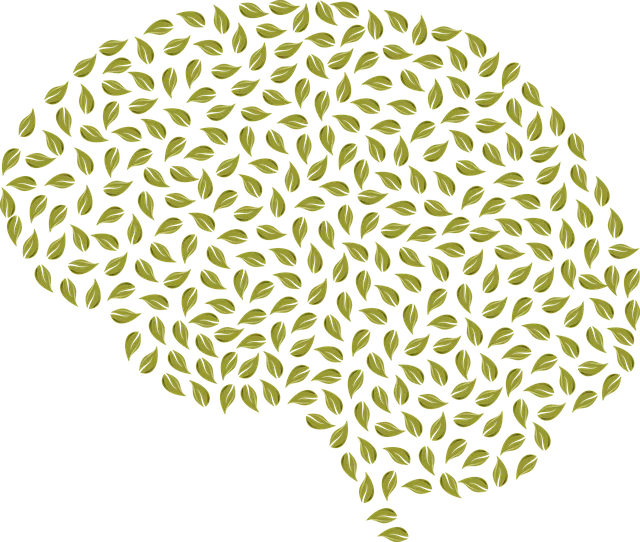Boulder Kaiser Permanente leverages advanced data analysis techniques, including NLP and predictive analytics, to personalize treatment plans and improve mental health education programs. By interpreting trends from extensive datasets, they gain critical insights into patient struggles and triumphs over various mental illnesses. This data-driven approach not only boosts patient confidence and reduces stigma but also enables efficient resource allocation and collaboration with researchers. Boulder Kaiser Permanente's rigorous protocols prioritize ethical considerations while safeguarding personal information, solidifying their position as a leader in innovative mental healthcare through advanced analytics and evidence-based practices.
Mental health data analysis is a powerful tool for understanding and improving patient care at institutions like Boulder Kaiser Permanente. This article explores the intricacies of analyzing and interpreting mental health data from this leading healthcare provider, highlighting key techniques and ethical considerations. By delving into data collection methods, we uncover how Boulder Kaiser Permanente leverages insights to enhance patient outcomes, while also discussing challenges and future directions in this rapidly evolving field, with a focus on Boulder Kaiser Permanente mental health initiatives.
- Understanding Mental Health Data at Boulder Kaiser Permanente
- Data Collection Methods and Ethical Considerations
- Techniques for Effective Mental Health Analysis
- Interpreting Findings to Improve Patient Care
- Challenges and Future Directions in Mental Health Data Interpretation
Understanding Mental Health Data at Boulder Kaiser Permanente

At Boulder Kaiser Permanente, understanding mental health data is a multifaceted endeavor that goes beyond mere numbers. The organization recognizes that each data point tells a unique story, reflecting individuals’ journeys with various mental illnesses. By meticulously analyzing trends and patterns within their comprehensive dataset, healthcare professionals gain valuable insights into effective treatment approaches and identify areas for improvement in their Mental Health Education Programs Design. This data-driven approach not only enables them to personalize care plans but also plays a crucial role in Confidence Boosting among patients, ultimately contributing to the reduction of mental illness stigma.
Boulder Kaiser Permanente’s commitment to mental health transcends analysis; it drives innovative strategies. Through rigorous interpretation, they can pinpoint success rates of specific interventions and tailor support systems accordingly. This process ensures that resources are allocated efficiently, catering to diverse patient needs. Moreover, by sharing anonymized data with researchers, the organization contributes to a broader understanding of mental health trends, fostering collaborations that advance evidence-based practices in their field.
Data Collection Methods and Ethical Considerations

Data Collection Methods for mental health studies play a pivotal role in understanding and addressing community needs. Organizations like Boulder Kaiser Permanente employ various strategies, including electronic health record reviews, patient surveys, and direct observations, to gather comprehensive data on psychological well-being. These methods ensure diverse insights, from identifying prevalent mental health concerns within the population to tracking the impact of specific interventions, such as Community Outreach Program Implementation initiatives or Mental Health Education Programs Design.
Ethical considerations are paramount during this process. Ensuring informed consent, protecting patient privacy, and maintaining data confidentiality are fundamental. Boulder Kaiser Permanente adheres to strict protocols to safeguard personal information while facilitating valuable research that drives improvements in Self-Esteem Improvement and other mental health-related services. This balanced approach fosters trust among participants and contributes to evidence-based practices that better serve the community.
Techniques for Effective Mental Health Analysis

At Boulder Kaiser Permanente mental health is taken seriously, utilizing advanced data analysis techniques to gain insights and improve patient outcomes. Effective analysis involves a multi-faceted approach. One key method is natural language processing (NLP), which enables the extraction of valuable information from textual data like therapy notes and patient diaries. NLP can identify patterns related to symptoms, treatment responses, and even early signs of relapse, allowing for timely interventions.
Additionally, predictive analytics plays a crucial role in Risk Management Planning for Mental Health Professionals. By analyzing historical records and identifying high-risk patients, Trauma Support Services can be proactively offered, enhancing patient safety. Self-Awareness Exercises also benefit from data-driven insights; personalized programs can be designed to foster self-reflection and coping strategies based on individual needs, thereby improving treatment adherence and overall mental well-being.
Interpreting Findings to Improve Patient Care

At Boulder Kaiser Permanente mental health facilities, data analysis plays a pivotal role in enhancing patient care and outcomes. By interpreting findings from comprehensive mental health assessments, healthcare professionals can gain profound insights into individual needs and tailor their treatment plans accordingly. This personalized approach leverages the power of evidence-based practices, ensuring that each patient receives the most effective interventions.
The process involves not just identifying symptoms but also understanding underlying factors contributing to mental health challenges. This holistic perspective encourages the design of Mental Health Education Programs that foster resilience building and equip individuals with coping mechanisms. Moreover, crisis intervention guidance can be promptly deployed when data indicates acute distress, enabling swift and targeted support. Such interpretations ultimately aim to improve patient satisfaction and well-being, reflecting Boulder Kaiser Permanente’s commitment to exceptional mental health services.
Challenges and Future Directions in Mental Health Data Interpretation

Navigating the complex landscape of mental health data interpretation presents unique challenges for healthcare providers and researchers alike, particularly when considering the sensitive nature of such information. One significant hurdle is ensuring data privacy and security while allowing for meaningful analysis, especially with the increasing adoption of digital health records at institutions like Boulder Kaiser Permanente. Striking a balance between accessibility and confidentiality is crucial to foster trust among patients and encourage participation in mental health initiatives.
Looking ahead, the future of mental health data interpretation lies in leveraging advanced analytics techniques and artificial intelligence. These tools have the potential to uncover intricate patterns within vast datasets, enabling more precise diagnoses and personalized treatment plans. For example, implementing machine learning algorithms could assist in identifying risk factors for specific mental illnesses or predicting relapse rates. Additionally, integrating Self-Awareness Exercises and Mental Illness Stigma Reduction Efforts into data analysis frameworks can help identify community-level changes and facilitate more effective public health interventions.
Mental health data analysis plays a pivotal role in enhancing patient care at organizations like Boulder Kaiser Permanente. By understanding unique collection methods, considering ethical implications, and employing robust analytical techniques, healthcare professionals can interpret findings to significantly improve treatment outcomes. Despite challenges, the future of mental health data interpretation holds great promise, with advancements poised to revolutionize care delivery for Boulder Kaiser Permanente patients and beyond.






